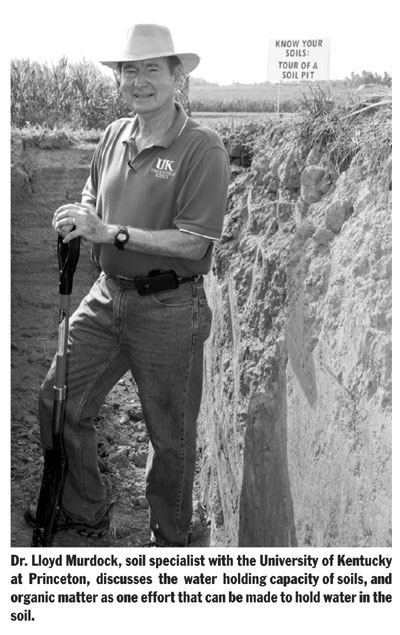Organic Matter Boosts Water Holding Capacity
PRINCETON, KY.
Residue on the soil surface is one method to conserve water in a drought situation like this year, according to Dr. Lloyd Murdock, soil specialist with the University of Kentucky at Princeton. In a discussion on the water holding capacity of soils, he pointed to organic matter as one effort that can be made to hold water in the soil.
“A lot of our soils in Kentucky aren’t deep enough to hold all the water that we will need for a corn crop, even with regular rainfall events that we have on a normal basis,” he said. “We’re actually limited almost every year with water and then on these particular years when it’s very, very dry we’re extremely limited because the soil is just too shallow. We have silt loam soils which is really good, it’s the best you can have on the surface, but the shallow depth is what limits us.”
He discussed some things that farmers can do to improve that. No one can change the soil but it can be improved.
“We don’t have a lot of sources of water for irrigation in Kentucky but we do have some, so it’s imperative that if a person has a chance to put in an irrigation system in Kentucky it’s obvious that we should be looking and thinking in those terms,” he said. “In a lot of places we don’t have that opportunity.”

In those cases, farmers need to try to keep as much water as possible on the soil, get it into the soil and hold it.
“Basically that boils down to organic matter and leaving residue on the soil surface,” Murdock said. “The more residue that we produce and leave on the soil surface the better the decomposition, the better structure that occurs on topsoil and so consequently we get better water relationships and better water holding capacity. “That’s basically what we need to do in our soils, especially our shallower soils in the state of Kentucky.” Δ
BETTY VALLE GEGG-NAEGER: Senior Staff Writer, MidAmerica Farmer Grower